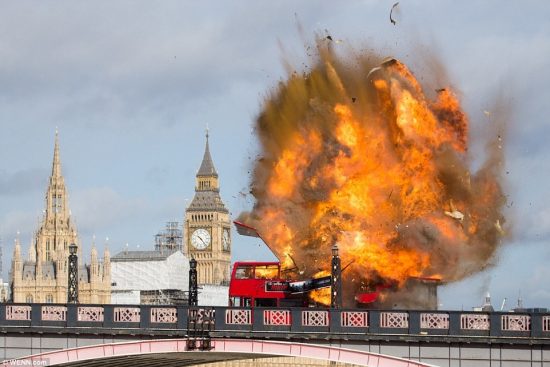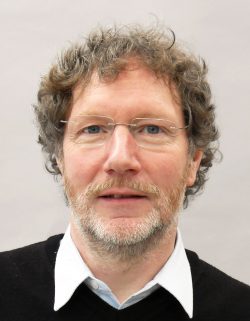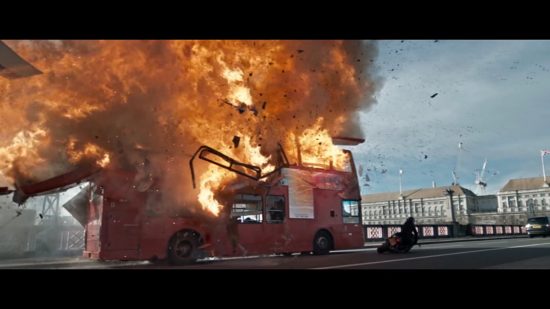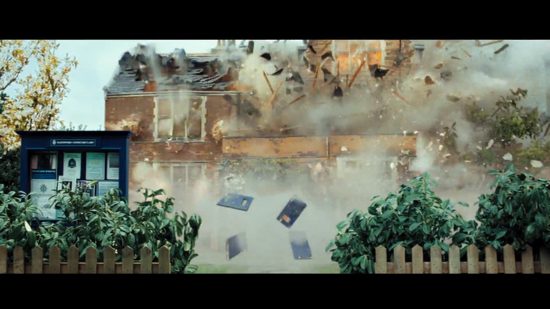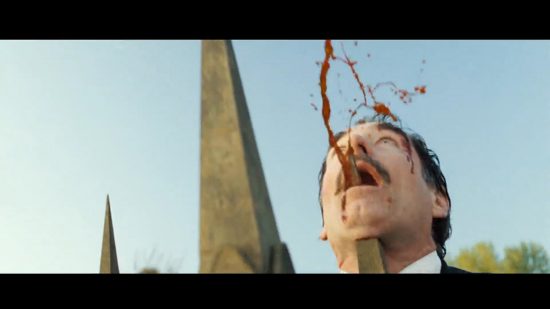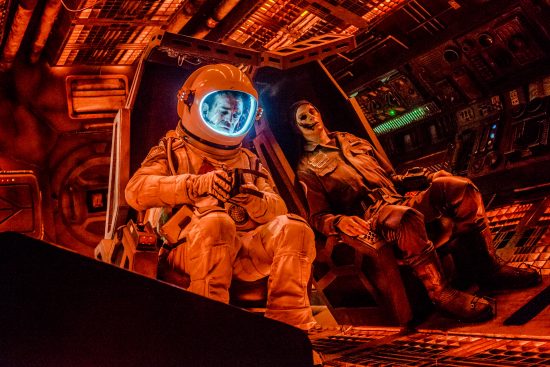Live for Films talks to Mike Kelt – CEO of British special effects masters Artem FX
British special effects house Artem FX turns 30 this year, and over that time has been instrumental in creating and contributing movie magic to the likes of: Hot Fuzz, T2: Trainspotting, Paddington 2, Macbeth, Ex Machina and the Outpost movies.
We recently caught up with Artem head honcho, Mike Kelt, to pick his brain about squibs, casting people’s heads in alginate, blowing things up, blowing people away, the future of the effects industry, and how you can go about trying to crack the industry if you’re keen.
Mike Kelt is one of the founding members of the company, and cut his teeth in the theatre as a designer and production manager. Before Artem, he worked at the BBC on iconic shows such as Dr. Who and A Hitchhiker’s Guide to the Galaxy, and he is now a member of the board of Media Arts and Crafts Council. He is also in helping to accredit relevant college and university courses for Creative Skillset as well as having advised them on the National Occupational Standards for Special Effects.
Hi Mike, I’m Alan from Live for Films. Thank you for taking the time to answer some questions for us. First off, can you please tell us about what Artem does, and what your role is?
Artem is historically a Physical Special Effects supplier doing everything from major explosions and all floor effects (rain, snow, wind, mist, mechanics etc) to miniatures and prosthetics. However more recently Artem has evolved and seems to do almost anything physical that is asked of it, so we also get involved for instance in creating themed interiors or developing mechanical products, including our own. My role is the CEO, but I am very much ‘hands on’ and supervise projects too.
What is the difference between visual and special effects?
Visual Effects has come to be known as covering everything Digital, whereas Special Effects is firmly based in the real physical world, and is often now referred to as Physical Special Effects to make things clearer.
Do you use squibs much, and how do they work?
The items known as squibs are small fast acting powerful pyrotechnic devices. An example of their use would be simulated bullet hits either on a person or object. For instance, a squib would be employed on a special protective plate to punch an instantaneous hole through a small blood bag and then the costume to give the effect of someone being shot. They come in many sizes and types to allow safe design of a desired effect.
Are gunshot effects ever dangerous, especially if it is a lot of hits?
If done correctly they are not inherently dangerous – or you wouldn’t be doing them! If not done correctly, by individuals who are not skilled and experienced, then accidents will happen.
What about explosions? What is the biggest thing you have ever blown up?
Perhaps the most interesting was a London bus for the film ‘The Foreigner’ with Pierce Brosnan and Jackie Chan. To be allowed to do it on Lambeth bridge in front of the Houses of Parliament was a credit to the authorities for their understanding of the film business, and their faith in us to do what was a very technical job. There were 12 stunt people on the lower deck as well as 2 SFX technicians setting it off, so comprehensive modifications to the buses structure were made to ensure safety.
One project you worked on that features a lot of gunfire is Hot Fuzz – a firm favourite at Live for Films. Was that film an enjoyable experience and what did your work on it entail?
We did all the SFX on ‘Hot Fuzz’, from rain and mist, through prosthetics and gunfights, to blowing up the Police station which was part real and part Miniature. One of my favourite moments was when the stone pinnacle fell off the church roof and squidged the poor actor below – that was interesting to work out and satisfying to see on set. I ended up doubling for Timothy Dalton so found myself stabbing an actor in the throat with garden shears on one occasion! The Director and crew were all lovely, and it was certainly an enjoyable experience.
What is the most fun effect you have ever been a part of?
Fun? Difficult to say as after a job is over you tend to have selective memory! And things I think of as ‘fun’ might be remembered as being a pain in the butt by others on the team! If it were rephrased as exhilarating then the opening ceremony of the 2012 Olympics was certainly that, and as we were responsible for such a large amount of stuff the adrenalin was certainly pumping during the event.
Have you ever had your head cast in alginate, or done it to someone else? How does the process work and is it horrible to sit through?
I have had my head cast in alginate and plaster – it was a very relaxing experience! (Although if you were claustrophobic maybe not). It is pretty quick, lasting no more than 20-30mins and gives a fantastic level of detail. Often nowadays 3D scanning is used, but it is not capable of as high a resolution, and variations can creep in when the data is cleaned up which can be frustrating, but it can take seconds and is non-contact, so actors prefer it.
What do you think of CGI effects, and are they still any kind of threat to physical effects? It seems like a lot of recent filmmakers would rather do what they can for real now.
The 6-day wonder of Digital has been replaced with a sensible appreciation of where it is best used and best avoided. It is obviously a fantastic tool that lets the creative mind run free, providing there is a budget to allow it. There are many areas of SFX that have reduced or disappeared as a result of CGI, such as spaceship miniatures, but there are also physical effects that have been introduced to tie Digital Effects into the story and scene. We did a miniature for ‘Hurricane Heist’ where a house had to be destroyed by a tornado. They didn’t want to use CG because of the unpredictable nature of the action – that sort of chaos is more difficult to visualise in CG. I think that since the advent of CGI there are more Physical Effects than before, not less, because story-wise anything is now possible, and thankfully when planning shots all options are considered, to give the best finished visual.
What is the future of special effects? Are there still breakthroughs all the time? Are any things getting easier to do with advancing skills and technology?
Over the last 5-10 years the SFX industry has changed considerably. At Artem most projects now start on the computer, being drawn up in ever more complicated software, all aimed at a final physical build. So we will effectively do CGI, but then take that further and use 3D printing, CNC machining or a Robot to carve the final elements, which are then finished by skilled technicians. The future of SFX is assured, and we need more skilled people entering the industry.
Working in special effects is a dream job for a lot of film fans. What advice would you give any up and coming upstarts on how to get started?
There are various University and college courses in Physical Special Effects and Model Making. You can get an honours degree in SFX! All this gives a basic grounding but it really only gets you through the door to an interview. You have to convince the interviewer that you are a nice person people want to work with, enthusiastic, and quick to learn. And you have to be determined to succeed. If you tick all those boxes you will have a good and profitable career. I’d rather employ someone who is nice but inexperienced than someone who is a pain with all the experience in the world. You can teach the inexperienced person.
You recently worked on Solis – which screened at this year’s EIFF – what can we expect to see from you and your team in that one?
‘Solis’ was a low budget space film, made by an incredibly enthusiastic team. Our involvement was to help with the weightless elements, doing flying work on wires and on specialist rigs, as well as pyrotechnics and breakaway items or atmospherics. We have just finished working on ‘Transience’ with them which was another enjoyable experience for the team.
What projects do you have coming up next?
As you might imagine we sign NDA’s all the time, preventing us from discussing much that is in production. But we worked on ‘Bodyguard’ a new TV drama being trailed for the Autumn and I’m looking forward to seeing that.

